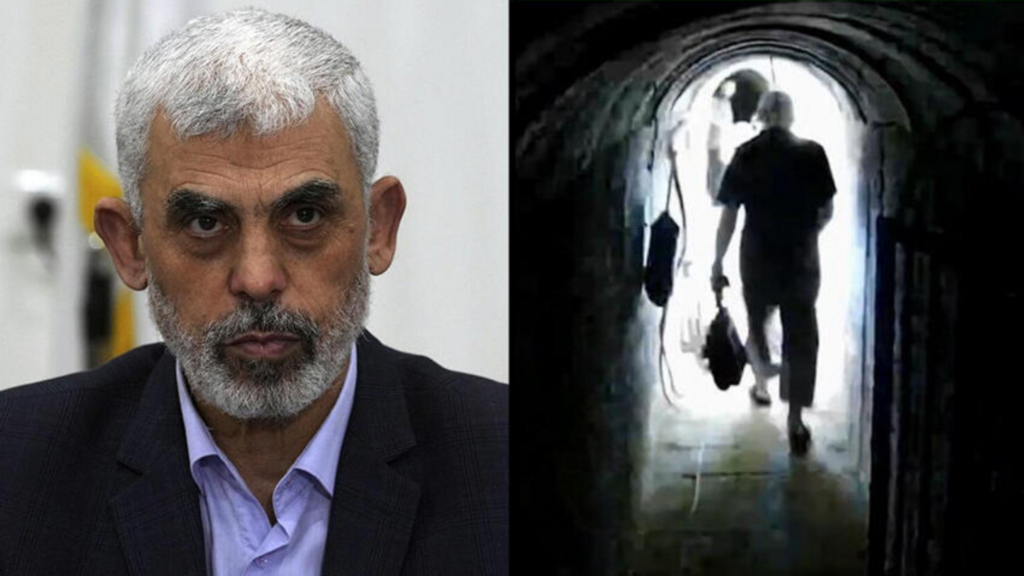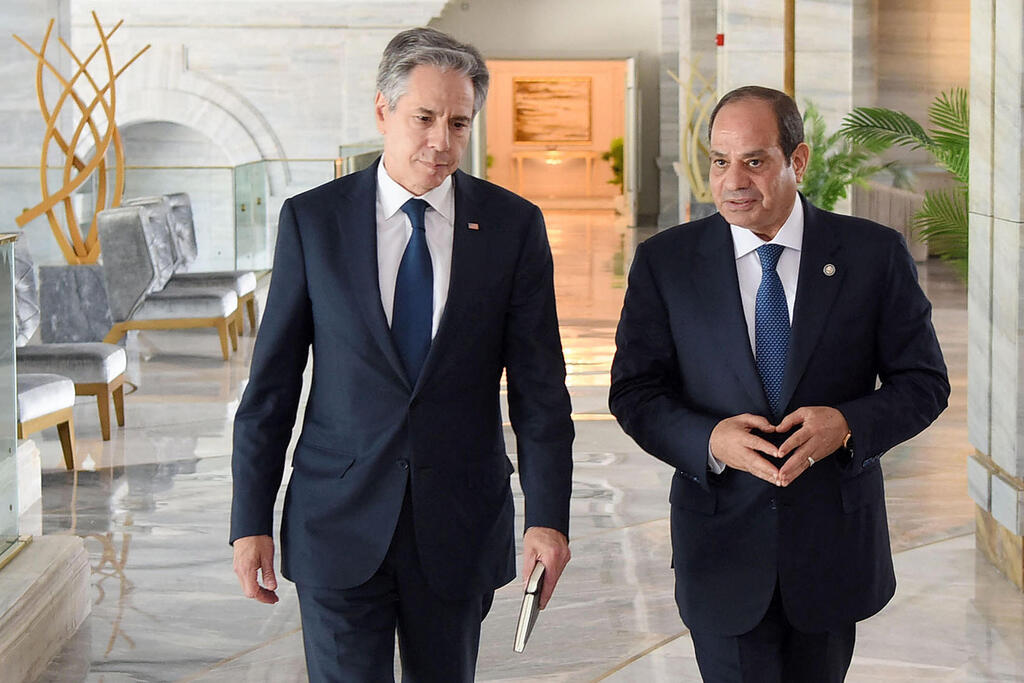Getting your Trinity Audio player ready...
In the corridors of the Egyptian government, a palpable sense of pessimism lingered on Wednesday following Secretary of State Antony Blinken's discussions with President Abdel Fattah el-Sisi. Egyptian insiders claim Blinken conveyed to the president and his foreign minister a stark message: from the U.S. vantage point, this current round of talks might well be the last indirect engagement between Israel and Hamas. The urgency was clear – reaching a conclusive agreement is paramount, and the sponsors, Egypt and Qatar, must persuade both Hamas and Israel to embrace the American proposal without adding complications.
That said, the narrative is not entirely bleak. Arab media outlets, including the London-based Arabic newspaper Asharq Al-Awsat, report a different tone. Conversations with intelligence officials and members of el-Sisi's office suggest that "understandings have been reached that could pave the way for agreements with the Israeli side." As for the Palestinians, there is cautious optimism. "There could certainly be a positive shift, but negotiating with Sinwar is challenging," according to an official in Cairo. "We know Sinwar wants an agreement but remains steadfast in his conditions."
An Egyptian official, in dialogue with his U.S. counterparts, underscored a crucial stipulation: Should a deal be struck alongside the return of hostages, "Sinwar insists on guarantees for his safety and life," meaning Israel must commit to refraining from assassinating him post-agreement.
Sinwar hiding in Gaza tunnels
(IDF)
Sinwar, the Egyptian source clarified, delivers succinct and unequivocal messages, aware they will pass through many hands – Palestinian, American, and Egyptian – eventually reaching senior Israeli officials.
In terms of advancing negotiations, Cairo acknowledges the difficulties in jumpstarting talks, particularly since Haniyeh's assassination in Tehran and Sinwar's subsequent appointment as his successor. Hamas, lacking a dignified delegation for negotiations, has reportedly rejected the idea of sending representatives to Cairo alongside the Israeli delegation to facilitate message exchanges through senior Egyptian intelligence officials.
Simultaneously, Cairo firmly maintains its rejection of any proposal for an Israeli presence along the Philadelphi Corridor, a debate that lingers unresolved. The latest mediator proposal suggests installing underground surveillance facilities along the corridor, with Egypt constructing an iron barrier to thwart the smuggling of goods, including weapons and ammunition.
Another unresolved issue is the authority responsible for security at the Rafah crossing on the Gaza side. Cairo has made it clear to Blinken that they insist on Palestinian presence rather than an Israeli one, but they have yet to decide who will fill this role. The question remains whether it will be forces of the Palestinian Authority or those loyal to Mohammed Dahlan, leader of the "Reformist Democratic Movement," who resides in Abu Dhabi but commands a large cohort of followers in the West Bank.
Another name emerging ahead of this "last chance" negotiation round in Egypt is Ibrahim Alarajani, a Bedouin-Palestinian with close ties to the Egyptian ruling elite, invited to participate in discussions about Gaza. His inclusion has been agreed upon by Israel, where senior security circles know him well.







